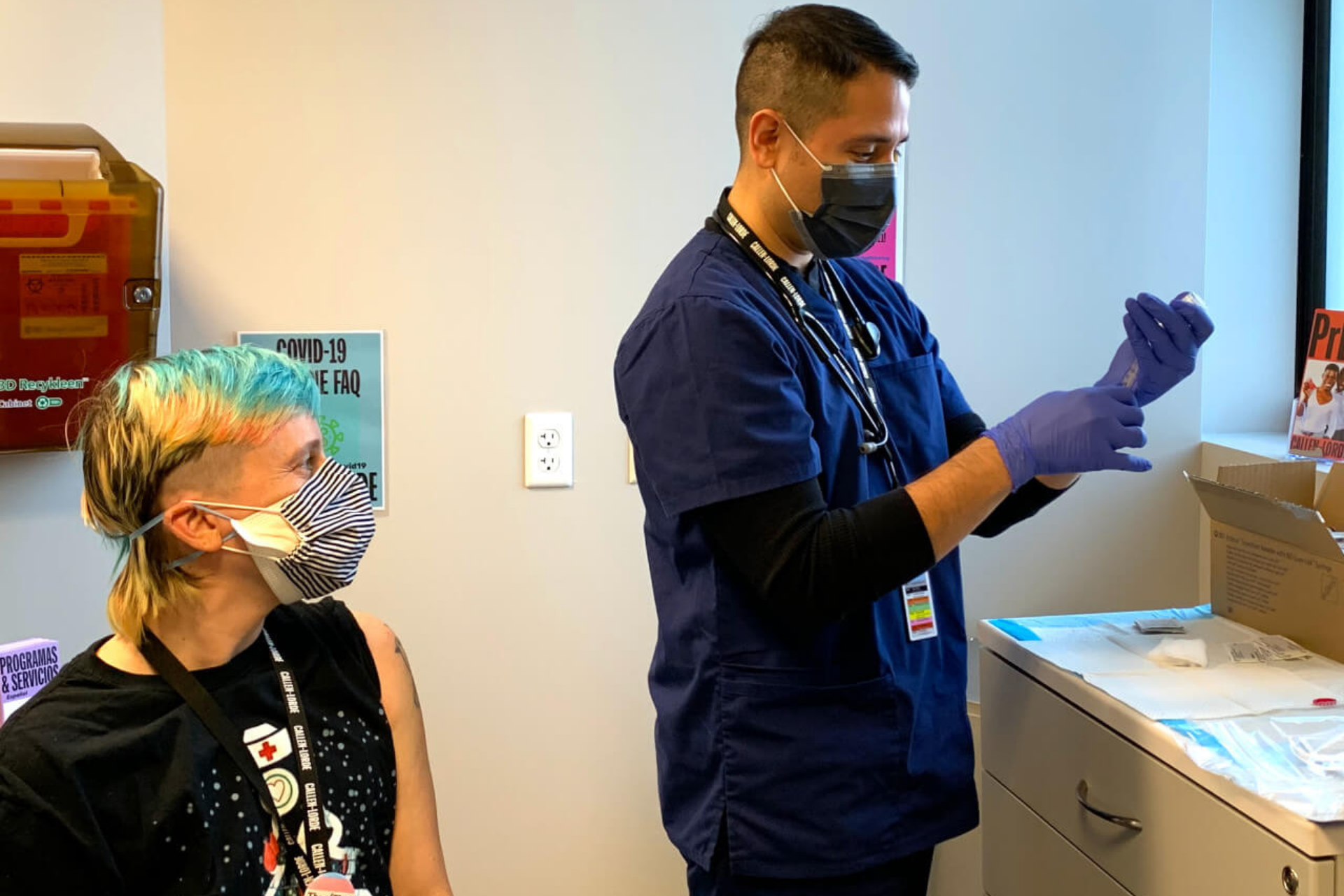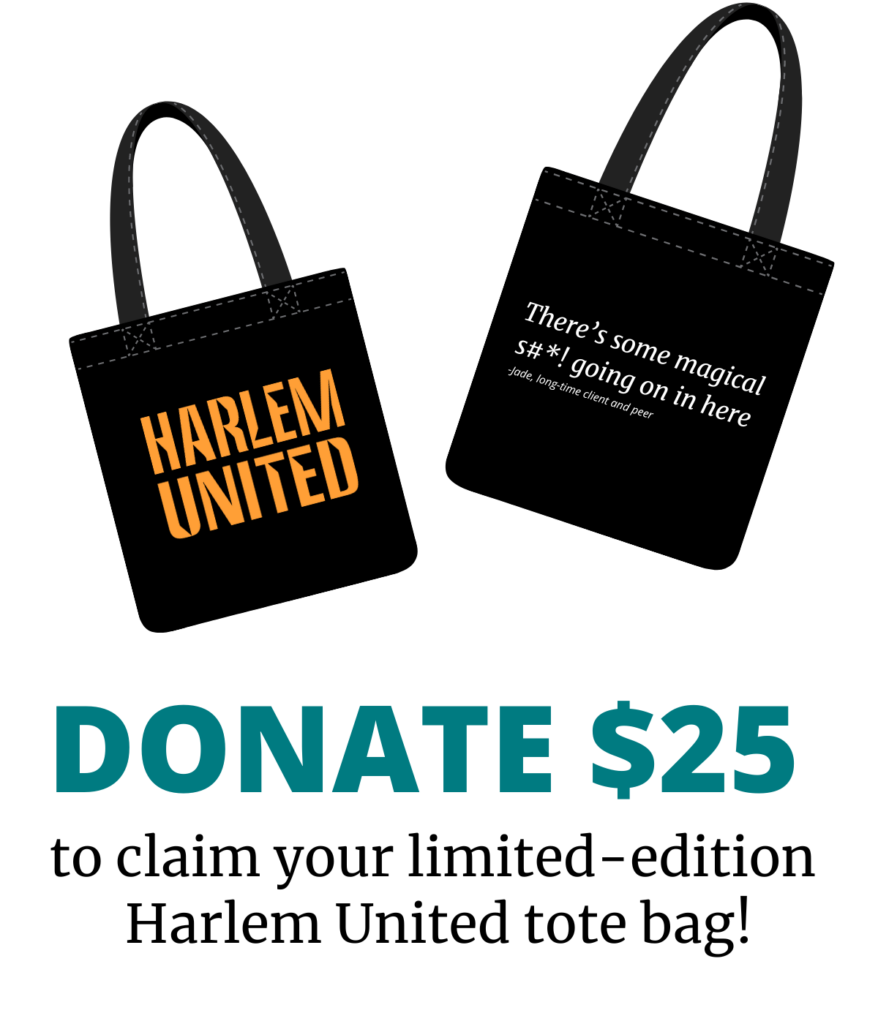By Tat Bellamy-Walker
Gay City News
“When we’re in the trenches, they keep asking us to do more,” said Tom Marino, chief transformation officer for Harlem United, a community health center in Manhattan. “But we don’t know how much more we can give. There are people who are sick because they’re exhausted, and when you have run yourself down, you become more susceptible to COVID. I’m seeing more of my staff become ill.”
Workers at community health centers serving LGBTQ populations in the city are feeling overburdened as they scramble to vaccinate New Yorkers and simultaneously care for other patients, prompting them to call on the city and state to provide more financial assistance.
As the state expands vaccine eligibility to include people 75 years or older and essential workers, several major health centers told Gay City News they are struggling to meet the growing demand. This comes as many health officials juggle burnout, staffing shortages, and high costs associated with distributing the vaccine.
“When we’re in the trenches, they keep asking us to do more,” said Tom Marino, chief transformation officer for Harlem United, a community health center in Manhattan. “But we don’t know how much more we can give. There are people who are sick because they’re exhausted, and when you have run yourself down, you become more susceptible to COVID. I’m seeing more of my staff become ill.”
The US began administering the vaccine to clinicians in December. Since then, Mayor Bill de Blasio announced on Twitter and that he’s committed to administering 1 million COVID-19 vaccinations in January.
As of January 14, more than 266,000 people in New York City received their first dose of the COVID-19 vaccine and at least 37,114 people received their second dose, according to the city’s daily COVID-19 tracker.
Marino’s staff has a goal of vaccinating at least 50 people per day, but with more clinicians out sick due to COVID-19, Harlem United is trying to fulfill the state’s needs with fewer people on hand. Marino said he was diagnosed with COVID-19 and is quarantining.
According to the New York State Department of Health’s “Medicaid Coverage Policy and Billing Guidance for the Administration of COVID-19 Vaccines,” practitioners can be reimbursed $13.23 per injection.
At this rate, Marino said his organization would have to administer 1,000 vaccinations just to make $13,000.
Still, this would account for just a fraction of a nurse’s salary. The city’s mass vaccination campaign comes with increased administrative costs, including reporting and tracking each dosage. Because of COVID, there are fewer patients coming into their offices, which means their bottom line is also taking a hit.
“It’s not sustainable,” said Marino, who noted that the office received more than 120 calls earlier this week about the vaccine. “It’s a lot of management. A lot of coordination and $13 per shot is just not going to cut it.”
Health centers like Callen-Lorde, which serves queer clients, and Housing Works, a non-profit focused on HIV/AIDS and homelessness, said they need more staff to keep up with the volume of patients. Housing Works president Matthew Bernardo said his organization needs more financial support for vaccine outreach and education.
“This is a double dose type of situation,” Bernardo said regarding the CDC’s guidance to administer two injections. “We need outreach workers to find folks who are vulnerable and are now eligible. They are not necessarily going to come in on their own from just an email.”
To undertake the city’s plan, both Housing Works and Callen-Lorde have redirected staff away from other departments to vaccinate. Meanwhile, Harlem United is planning to expand telehealth services, freeing up more space to administer vaccines.
Anthony Fortenberry, director of nursing at the Callen-Lorde Community Health Center, said his team has been doing more with less ever since the pandemic slammed the city in March.
“We are calling on again to put in overtime and work extra hours to vaccinate their colleagues, their patients, and the community,” he said.
Both Housing Works and Callen Lorde are facing looming cuts to the states’ 340B drug discount program for managed Medicaid providers, which could make it even more challenging to vaccinate the city’s most vulnerable populations. The cuts are slated for April and officials said this essentially could make widespread vaccination efforts go stagnant.
“It’s really hard to hire right now when we could have to lay them off in two months,” Fortenberry said. “With this fiscal cliff we’re facing, it puts us in a very difficult position of not being able to hire and staff these vaccine clinics to what we feel we would need to meet our patients’ demands.”
The vaccinations also come with a lengthy virtual attestation form. This has become a hassle for elderly patients — and is an even more costly burden for the centers.
“I had an 83-year-old patient and it took him a long time to get through that online form,” Fortenberry added. “We had to have an extra person sit in the waiting area and go through the form with each individual patient which really backed us up.”
“Now we need two people to just get one vaccine done,” he said.
Originally published in Gay City News on January 14, 2021.

